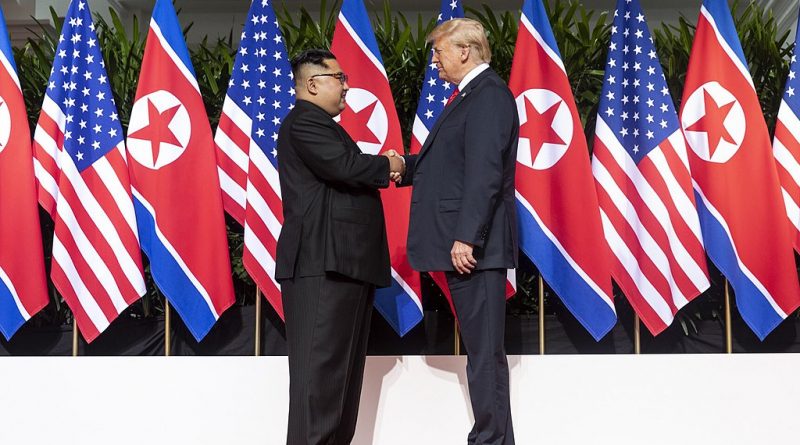Nuclear Summit 2.0: The United States at a Crossroads
by Shawn McFall
Last year’s historic meeting in Singapore between North Korean President Kim Jong-Un and President Trump was full of pageantry but scant on policy. With the recent announcement of a second summit between the two leaders, scheduled to take place on February 27 and 28, in Hanoi, many are hoping that this summit will produce tangible steps toward denuclearization. President Trump has an opportunity to strike a deal with North Korea that could further the United States national interest, and potentially start a new era of detente with North Korea. However, if the United States makes a poor deal, then there is a significant risk of decoupling its existing alliances with South Korea and Japan. With the importance of the summit, it is vital that the United States has realistic expectations and does not put its own interests ahead of their allies.
President Obama’s policy of Complete, verifiable, irreversible, denuclearization (CVID) of the North Korean nuclear program remains the United States policy. The Trump administration has rebranded CVID as final, fully verified denuclearization (FFVD) of North Korea, but the rebranding has not altered U.S. policy, which to date demands that North Korea fully denuclearize before receiving sanction relief. However, full denuclearization is a lot easier said than done, and the probability of North Korea fully denuclearizing before receiving any economic relief is zero. If the United States sticks to its official policy, it risks undermining the summit and renewing the dangerous policy of brinkmanship with North Korea.
If FFVD cannot be immediately attained, then President Trump will be better off adopting a piecemeal strategy with multiple trust-building interactions. Currently, North Korea claims that the United States is not holding up its end of the Singapore Summit. North Korea cites their mostly symbolic gestures of suspending their nuclear and missile tests and closing down the Punggye-Ri nuclear test site as a sign of good faith. To reciprocate, the United States should acknowledge that they do not plan to prevent any economic exchange between North and South Korea. This action aligns with South Korea’s current plans for further economic engagement with the North and gives the United States credibility that it will negotiate in good faith. The United States should follow up this concession with demands that North Korea stop producing weapon-grade materials, and allow IAEA inspectors into their country to verify their compliance. Preventing North Korea from producing weapon-grade materials would not lead to denuclearization but it does limit their ability to produce more weapons and introduces inspectors into North Korea for the first time since they left the Non-Proliferation Treaty (NPT) in 2003.
Finally, the United States should avoid making a deal that alienates its allies. South Korea’s President Moon and Japan’s Prime Minister Abe have recently announced their willingness to work with the North Korean regime. The United States should encourage and play a facilitating role in building trust between these three countries. However, a potential deal leaked in late January, risks the United States accepting a deal purely in their self-interest, thus leaving its East Asian allies in a difficult situation. The leaked deal entailed a quid-pro-quo with North Korea agreeing to dismantle their ICBMs in return for the United States removing their troops from South Korea. This deal would still allow North Korea to keep its short and medium range missiles that threatens all of South Korea and Japan and removes the security that the U.S. troops offer South Korea. This would be a shortsighted deal and would likely encourage South Korea and Japan to look for other avenues for security including closer relationships with China. To avoid the risks of decouplement, the United States should only make concessions with its allies interests in mind, and resist the urge to make a deal just to claim a win.
The upcoming nuclear summit with North Korea will be a test of President Trump’s diplomacy and deal-making ability. By managing expectations, avoiding the easy win, and building a process of trust and good faith, President Trump could achieve a serious victory for the United States. However, a bad deal can just as easily restart the brinkmanship of 2016, or worse undermine the United States alliance system in East Asia.
Shawn McFall is a first year M.A. candidate at Seton Hall University’s School of Diplomacy and International Relations, with specializations in International Security and Foreign Policy Analysis. Shawn has previously written articles on North Korea for The Hill and The National Interest. He is a guest writer for the Journal.

